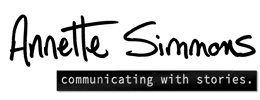
Stories with a Moral Blueprint – part 3 of 8
Trustworthiness as Competitive Advantage If morals need stories to thrive, it might also be true that stories need morals to thrive. Technically the stories you tell do not require moral intentions. Yet practical experience teaches us that few of the stories we cherish could possibly be classified as amoral. A story may not portray

